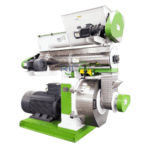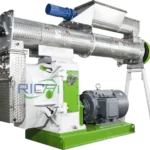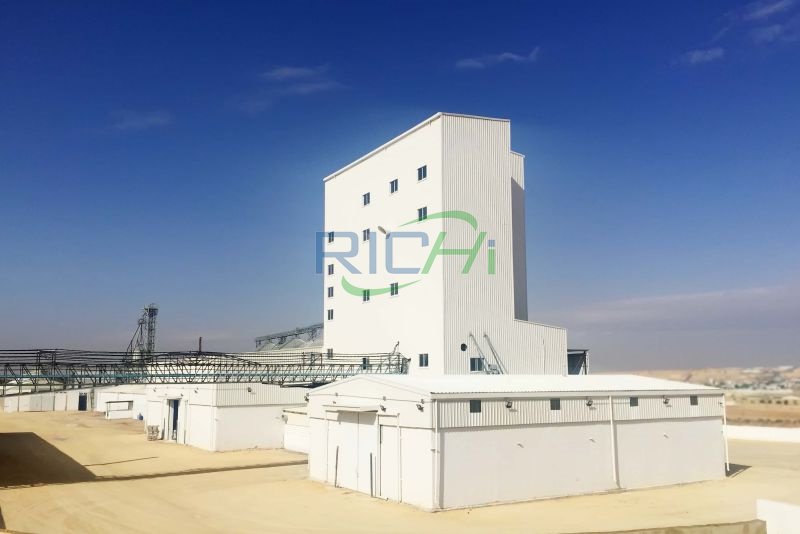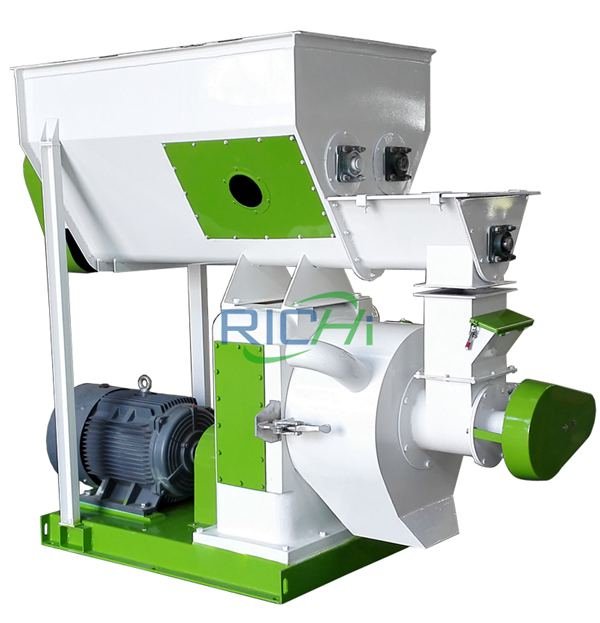Introduction to Fertilizer Granulator Machines
Fertilizer granulator machine plays a crucial role in the agricultural and industrial sectors by transforming raw fertilizer materials into granules. These granules are easier to handle, store, and apply, thereby enhancing their usability and effectiveness. Typically, these machines are employed to process a range of materials including urea, ammonium sulfate, and phosphate. Their primary function is to convert these raw substances into uniform, dust-free granules which can be easily distributed, ensuring a consistent nutrient application.
The granulation process begins with the raw fertilizer components, which are fed into the machine. Through a combination of mechanical forces such as compaction and agitation, and sometimes aided by chemical binding agents, the machine works to form granules of the desired size and density. Depending on the type of granulator—be it a rotary drum, a disc granulator, or a double roller granulator—the specifics of this process can vary, but the end goal remains the same: to create uniform granules that are readily usable.
One of the key advantages of using a fertilizer granulator machine is the improved efficiency it brings to the application of fertilizers. Granules produced are less prone to drift away with the wind or water runoff, ensuring that the nutrients reach the intended crops. Furthermore, granulated fertilizers offer better control over nutrient release rates, which can be tailored to meet specific crop requirements. This makes fertilizer granulator machines indispensable tools in modern agricultural practices, where precision and efficiency are paramount.
In industrial settings, these machines contribute significantly to production optimization by reducing waste and enhancing product quality. By converting fine powders and other raw materials into granules, they minimize dust generation, thus creating safer and more environmentally friendly workplaces. The strategic importance of fertilizer granulator machines in both agricultural and industrial applications underscores their value in achieving sustainable and effective production processes.
Uses of Fertilizer Granulator Machines
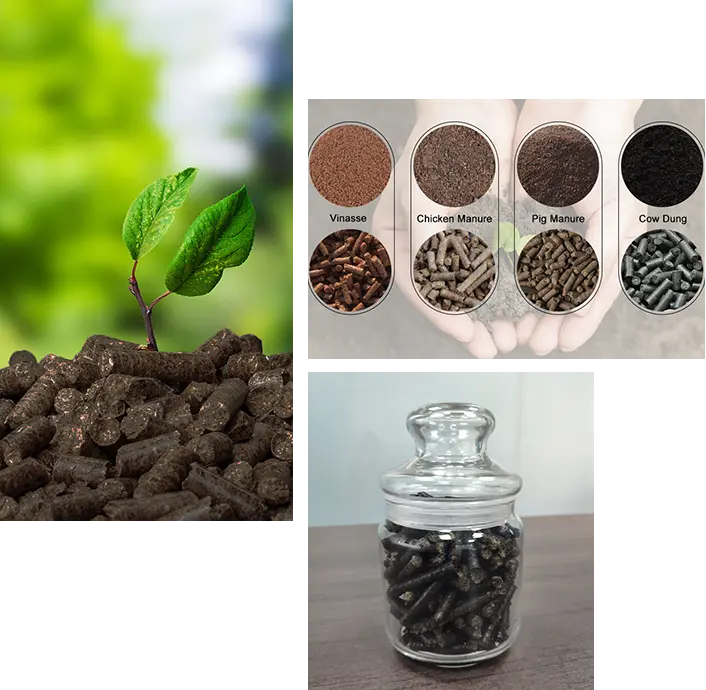
Fertilizer granulator machines serve a pivotal role across diverse sectors, notably in agriculture and horticulture. By transforming raw materials into uniform granules, these machines significantly enhance productivity and efficiency. One of the primary applications is in the manufacturing of compound fertilizers, which combine various nutrients essential for plant growth. This process ensures consistent nutrient distribution and optimal absorption by crops, thereby increasing agricultural yields.
A critical benefit of using a fertilizer granulator machine is the uniformity in fertilizer application. Granules produced by these machines are uniform in size and density, facilitating even spreading across the fields. This uniformity is crucial for preventing nutrient imbalance and avoiding over-fertilization or under-fertilization, which can harm crop health and soil quality. Additionally, evenly spread fertilizers lead to more predictable and robust plant growth, improving both quantity and quality of agricultural output.
Moreover, fertilizer granulator machines support sustainable agricultural practices. They enable the recycling of organic waste materials, such as manure and compost, into valuable nutrient-rich granules. This recycling process not only reduces waste but also minimizes the reliance on chemical fertilizers, contributing to more environmentally friendly farming practices. The efficient use of resources and reduction in chemical inputs align with global trends towards sustainable agriculture, promoting soil health and biodiversity.
Beyond agriculture, these machines find applications in sectors like landscaping and home gardening. Fertilizer granules are easier to handle, store, and apply than their powdered counterparts. Landscape professionals and garden enthusiasts can achieve desirable plant growth and aesthetic outcomes with less effort and waste, thus enhancing the overall effectiveness of their fertilization practices.
In essence, fertilizer granulator machines are indispensable tools for modern cultivation and gardening. They optimize nutrient use, ensure even fertilizer distribution, and support eco-friendly agricultural methodologies, making them vital to achieving high productivity and sustainability in farming and beyond.
Market Analysis and Profit Potential
The market for fertilizer granulator machines is experiencing significant growth, driven by the increasing demand for efficient and sustainable agricultural practices. According to recent market reports, the global fertilizer granulator machine market is projected to grow at a compound annual growth rate (CAGR) of approximately 6.7% from 2022 to 2027. This growth trajectory underscores the rising adoption of advanced granulation technology in the agricultural sector, as farmers and agribusinesses seek to enhance productivity and soil health.
Key players in the fertilizer granulator machine market include companies such as Henan RICHI Machinery Co. Ltd,. These firms have established strong market positions by offering a diverse range of machines tailored to various agricultural needs. They also invest continuously in research and development to advance granulation technologies, incorporating innovations that improve operational efficiency and environmental sustainability.
The demand for fertilizer granulator machines is largely driven by the global movement towards organic farming and precision agriculture. These practices require precise and efficient nutrient management, which granulator machines adeptly provide. Additionally, governmental support through subsidies and favorable policies aimed at sustainable farming practices further propels the market demand.
From a profitability standpoint, investing in fertilizer granulator machines can yield substantial returns. The profit potential is influenced by factors such as the cost of raw materials, machine efficiency, and the scale of production. By optimizing granulation processes and reducing material wastage, businesses can significantly lower operational costs. Furthermore, the ability to customize granules to meet specific crop requirements can command higher product prices, enhancing overall profitability.
Moreover, market entry barriers, including high initial capital investment and technical expertise required for operation, can serve as advantages for established players, ensuring a competitive edge and sustained profitability. Companies that prioritize innovation and efficiency in their granulation processes are well-positioned to capitalize on the burgeoning market opportunities.
Industrial Applications and Case Studies
Fertilizer granulator machines play a vital role across multiple industrial sectors, significantly shaping their operational efficiencies and productivity. One of the most prominent applications is within the agriculture industry. In large-scale farming, these machines facilitate the production of high-quality, uniform granules that enhance nutrient distribution in the soil. For instance, a case study from a large agricultural enterprise in Iowa demonstrated a 20% increase in crop yield after implementing a fertilizer granulator machine. The homogeneous distribution of nutrients led to healthier crops and minimized wastage of fertilizer materials.
Moreover, the horticulture sector has seen notable improvements through the adoption of these granulation technologies. A renowned commercial greenhouse in the Netherlands adopted a fertilizer granulator machine to customize nutrient blends for various plant species. Their implementation resulted in a marked improvement in plant health, translating into a 15% increase in produce quality and a reduction in nutrient runoff by 25%. These numbers underscore the machine’s efficacy in precise nutrient delivery, promoting sustainable horticultural practices.
Waste management is another critical area where the utility of fertilizer granulator machines becomes apparent. Organic waste, when processed through these machines, is transformed into valuable bio-fertilizers, closing the loop in sustainability efforts. A case in point is a municipal waste management facility in California that integrated a granulator machine into its organic waste processing system. This initiative led to an 18% reduction in landfill waste and produced bio-fertilizers that supported local agricultural activities, thus contributing to a circular economy.
The versatility of fertilizer granulator machines extends beyond the aforementioned sectors, influencing other industries such as forestry and biogas production. These machines assist in converting organic materials into renewable resources, fostering both economic and environmental benefits. As evidenced through these case studies, the tangible outcomes from deploying fertilizer granulator machines are manifold, highlighting their indispensable role in modern industrial applications.
Selecting the Right Fertilizer Granulator Machine and Suppliers
Choosing the appropriate fertilizer granulator machine is crucial for achieving optimal productivity and ensuring consistency in the production process. When evaluating the suitability of a fertilizer granulator machine, it’s important to consider a range of factors such as production capacity, type of granules desired, and the specific kinds of raw materials to be processed. For instance, some granulators are better suited for organic fertilizers, while others are optimized for various types of chemical fertilizers.
Key features to look for when selecting a fertilizer granulator machine include the granulation method (e.g., rotary drum, flat-die, or ring die pellet machine), energy efficiency, and the ease of maintenance. Machines that offer adjustable parameters for controlling the size and density of the granules can provide great flexibility, catering to diverse production requirements. It’s also important to consider the technology integrated within the machine, as advanced features can improve efficiency and reduce operational costs over the long term.
Similarly, identifying the right supplier is equally important to ensure the quality and reliability of the equipment. When evaluating suppliers, consider their industry reputation, the quality of their customer service, and the support they offer post-purchase. Trusted suppliers often provide comprehensive product testing, installation services, and employee training sessions. Checking for certified quality standards and the availability of spare parts can also be indicative of a supplier’s reliability.
Customization plays a significant role in meeting the unique specifications of different production environments. Leading suppliers offer customizable solutions where machines can be tailored to specific requirements, including desired output characteristics and space constraints. This customization can greatly enhance the efficiency and effectiveness of the fertilizer production process. Engaging with suppliers who understand these needs and can offer bespoke solutions ensures that the chosen fertilizer granulator machine aligns precisely with operational goals.
Ultimately, the decision to invest in a particular type of fertilizer granulator machine and select a reliable supplier should be informed by thorough research and careful consideration of production needs. Aligning these choices with specific goals and requirements can lead to long-term success and operational excellence in fertilizer production.
Introducing Richi Machinery: A Leader in Turnkey Solutions
Richi Machinery has firmly established itself as a leading manufacturer in the fertilizer granulator machine industry. Recognized for their advanced technology and engineering capabilities, the company has earned a reputation for delivering high-quality, efficient, and reliable equipment tailored to meet the diverse needs of the fertilizer production sector.
One of Richi Machinery’s core strengths lies in their ability to offer comprehensive turnkey solutions. This approach encompasses the design, manufacturing, installation, and commissioning of complete fertilizer production lines. By integrating each stage of the process, Richi Machinery ensures seamless project execution and minimized downtime, providing significant value to their clients. Their end-to-end service model empowers customers with robust and user-friendly systems that enhance operational efficiency and product quality.
Customization is another hallmark of Richi Machinery’s offerings. The company boasts an experienced team of engineers and technicians who work closely with clients to develop bespoke fertilizer granulator machines that cater to specific production requirements. Whether it’s adjusting the granulation process to suit different raw materials or optimizing the machine for varying output capacities, Richi Machinery’s ability to provide tailor-made solutions sets them apart in the crowded marketplace.
Partnering with Richi Machinery comes with a myriad of benefits. Their industry expertise ensures that clients receive cutting-edge technology, backed by thorough research and development. The company’s commitment to post-sales support, including training and maintenance services, ensures that clients can maximize the lifespan and performance of their equipment. Furthermore, Richi Machinery’s focus on sustainability and efficiency aligns with the growing need for environmentally friendly manufacturing practices in the fertilizer industry.
In essence, Richi Machinery exemplifies leadership in the fertilizer granulator machine sector. Their extensive experience, dedication to customized turnkey projects, and unwavering commitment to client satisfaction make them a preferred partner for businesses aiming to advance their fertilizer production capabilities.
Frequently Asked Questions about Fertilizer Granulator Machines
Potential buyers and users of fertilizer granulator machines often have a variety of questions regarding their operation, maintenance, and optimization. Here are some frequently asked questions and their answers to help you make informed decisions.
Operational Efficiency
How efficient are fertilizer granulator machines? The efficiency of these machines largely depends on their design and the materials being processed. Modern fertilizer granulator machines are equipped with advanced technology that ensures high throughput and minimal waste. To maximize efficiency, it is vital to choose a machine that is compatible with the specific type of fertilizer being produced, whether it be organic, inorganic, or a specialty blend.
Maintenance Requirements
What are the maintenance requirements for a fertilizer granulator machine? Regular maintenance is crucial to ensure the longevity and consistent performance of the machine. This typically includes routine inspections, lubricating moving parts, and replacing worn-out components. Adherence to the manufacturer’s maintenance schedule can prevent unexpected breakdowns and prolong the operational life of the machine. Furthermore, training personnel in proper operating procedures can considerably reduce the need for frequent maintenance.
Cost Considerations
What are the cost implications of investing in a fertilizer granulator machine? Costs can vary significantly depending on the type and capacity of the machine. Initial investment is typically high, but the long-term benefits such as increased productivity, reduced labor, and improved product quality often justify the expenditure. Additionally, potential buyers should consider the cost of spare parts, maintenance, and energy consumption when calculating the total cost of ownership.
Optimizing Performance for Specific Applications
How can I optimize the performance of my fertilizer granulator machine for specific applications? Optimization begins with selecting the right machine for the desired application. Factors such as particle size, material moisture content, and formulation can affect performance. Adjusting operational parameters like feed rate, rotational speed, and temperature control can also enhance output quality. Employing advanced control systems and regular performance assessments can further optimize machine performance, ensuring it meets specific application requirements efficiently.
